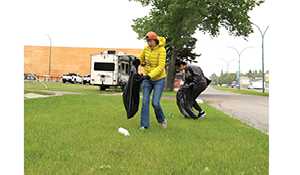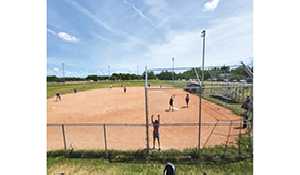Mussels being stopped at the border
Moosomin Inspection Station has found three boats with invasive species so far this year
June 16, 2025, 8:36 am
Ashley Bochek, assistant editor
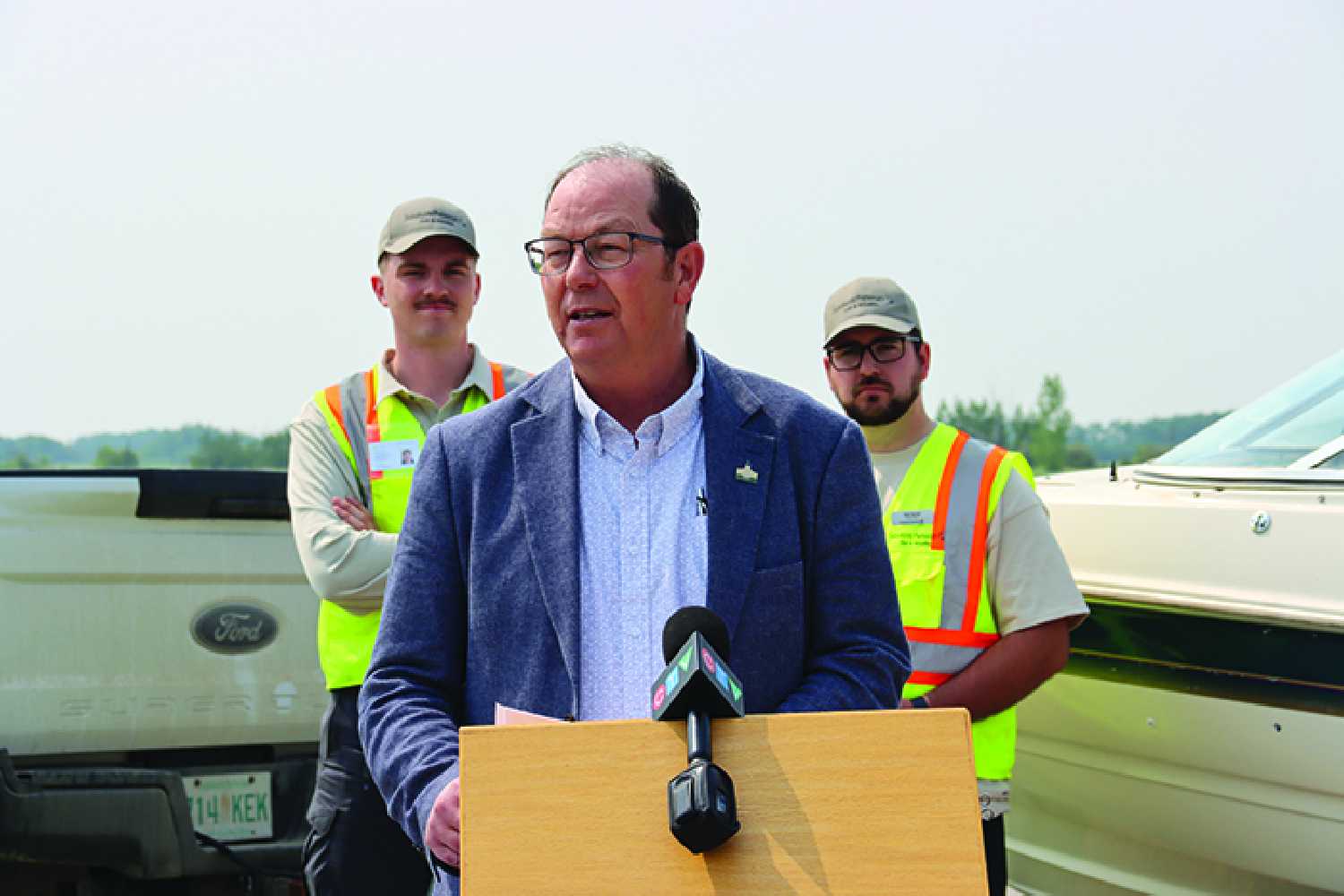

The Saskatchewan Watercraft Inspection Station for Invasive Species east of Moosomin has detected invasive species on watercrafts three times so far this season.
The province has been working hard to keep Saskatchewan waters free of zebra mussels and other invasive species. The inspection station at the Moosomin weigh scales is one of six sites that are part of that effort.
Jeri Geiger, team lead for the Aquatic Invasive Species program in Saskatchewan says the Inspection Station east of Moosomin has detected and decontaminated three watercrafts infected with invasive species so far this season.
"We have had three watercrafts with zebra mussels. This would be the most we have had so far this early in the season. It was a bit surprising because I feel like all provinces in Western Canada have increased efforts and outreach and yet we are tending to find more watercrafts moving that are being fouled, so it is concerning."
Geiger says the province is working toward public awareness so individuals understand and perform inspections on their own watercrafts.
"It is great that our stations are detecting them and finding them when we do intercept them. We really want people to be aware that they have a responsibility to prevent these invasive species. It is against the law to transport invasive species, dead or alive, so it is very important to be aware of that and to also make sure you are taking the proper steps in cleaning procedures to your watercraft whether you are transporting it for someone else or purchased it out of province and hauling it home especially if you are purchasing it from an area where there is a high risk of zebra mussels, anytime after using or before transporting, the watercraft should be inspected."
Invasive species travelling east to west
Geiger says most watercrafts their stations have inspected with invasive species are from Ontario and Manitoba.
"We have had boats from Ontario and Manitoba—they are definitely the most popular.
"The highest risk and the ones that Western Canada are mostly concerned about are zebra and quagga mussels because of the significant economic costs associated with those particular species. They tend to have huge impacts on any kind of infrastructure so for things like hydropower generation or irrigation, they clog the pipes so quickly that the maintenance costs associated with just trying to keep your equipment running really increases so just in order to maintain your operations, your costs just with maintenance, cleaning, and replacement really go up a lot."
Geiger explains the added effects invasive species have on our ecosystems. "They impact our food webs as well. Invasive mussels are filter feeders—so they filter out any food that our native fish and other species rely on to survive. Eventually, it can decrease the amount of recreation area available for things like tourism in provincial parks. People like to go kayak and swim and if we have introductions of invasive species the areas where people are able to do that could potentially be decreased."
Clean, drain, dry watercrafts
Geiger explains the importance of inspecting and following safe watercraft protocol.
"It is so important. The zebra mussels can be very small and hard to see, so we want people doing the inspection process on their own. It is really important that people do self inspection of their watercraft and their equipment and make sure everything is clean, drain, dry because we can be out on the highway in those high risk areas trying to address high risk boats, but we can't be here 24/7. They can also be transported in really small amounts of standing water as well. It is really important people make that part of their regular routine in using a boat—making sure that they're doing that clean, drain, dry management practice every time they use their boat or kayak so they are not inadvertently transporting something else into water bodies."
If watercraft is infected
Geiger explains the multiple ways the inspection stations handle watercrafts infected with invasive species in Saskatchewan.
"There are a couple of different ways. The first step is to do the decontamination to make sure it is clean, drain, and dry. It is against the law to be in possession of invasive species—dead or alive. So we have to remove them first as part of the clean, drain, dry process. Then we will go through a decontamination which is spraying really hot water to kill anything remaining on the boat to make sure we are removing any risk that those species attached to the boat might still be left over. The next step depends on where they are going from there. So typically we quarantine any watercraft that are fouled for 30 days and that is just to make double sure in case something is missed. It is part of the procedure to make sure we are taking extra precaution and making sure nothing can be introduced into our waters. So there is that quarantine period and then potentially fines associated with that as well. That is up to the conservation officers whether they are going to charge an individual for having a fouled boat because it is against the law it is unlawful under the fisheries active regulations so they do potentially have a fine with that as well."
Background of invasive mussels in Canada
Geiger says zebra mussels were first detected in Eastern Canada.
"Invasive mussels arrived in the Great Lakes in the '80s so places like Ontario they have been in existence for a couple of decades, but in Manitoba they were first detected in 2012 in Winnipeg so that is when we really started to see prevention efforts increase within Canada. In Saskatchewan, the regulations to address things like prevention and trying to manage the movement of watercraft were introduced in 2015 so that is where Saskatchewan's watercraft inspection program started. There were things being done prior to 2015 as soon as they were being detected in Manitoba and we started working on things such as education—educating the public about invasive species like zebra mussels, but the watercraft inspection started in 2015 and it has increased since.
"We have six inspection stations in Saskatchewan. We started with two inspection stations back in 2015 and now moved up to 12 inspectors and six stations across the province. We also have a couple of additional trailers positioned in key places of the province. For example, at Tobin Lake, because that is just such a popular destination for watercraft coming into the province and from the United States as well so we do get support from the conservation service up there to do inspections for us when we can't get those watercraft or they will do decontaminations for us as well. Primarily, we are focused on our borders and most of the time have those watercraft long before they ever get up there, but it is a precaution to have an additional layer of protection for places like Tobin Lake."
Minister of Environment visits Inspection Station at Moosomin
Travis Keisig, Saskatchewan's Minister of Environment, made an announcement on the importance of precautionary watercraft procedures at the Inspection Station east of Moosomin last Thursday.
He says the public needs to be aware of the challenges invasive species bring to our aquatic waters in Saskatchewan.
"We need to educate the public on how invasive and problem-causing aquatic species can be if they do get into our lakes and waters in Saskatchewan and how important it is that we adhere to our clean, drain, and dry procedure."
Saskatchewan water bodies have not been infected by invasive species to date.
"It is critical we do everything we can to keep them out of the province of Saskatchewan because once they are established it is nearly impossible to get rid of them," Keisig explained.
"We are seeing challenges in Manitoba, North Dakota, Ontario, and across Canada and the United States, and Saskatchewan is zebra mussel free and we are very proud of that.
"Every dollar that we can invest in keeping zebra mussels out is going to save us millions of dollars in the long run from having to deal with the issues from zebra mussels.
"It is important that each and every Saskatchewan person understands the importance of stopping at the inspection stations.
"It is not an ask—it is the law. When you have your boat, stop at the inspection station and clean, drain, and dry, and always remember to remove your drain plug."
Keisig says he enjoys travelling across the province and meeting the employees that help keep our province zebra mussel free.
"It has also been great to meet some of the employees across the province and the good work they do each and every day at the testing sites across the province of Saskatchewan."





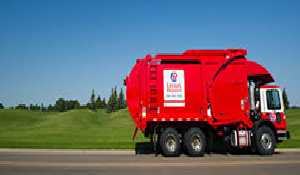

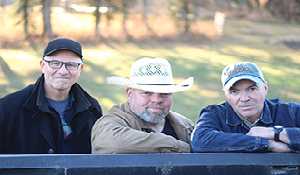


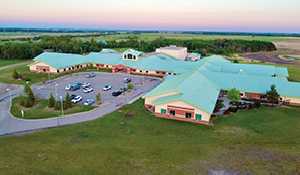

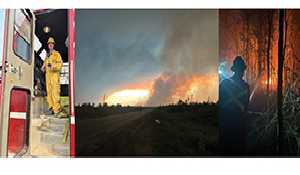
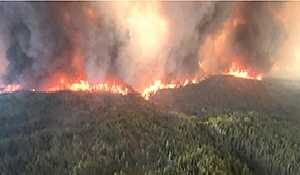






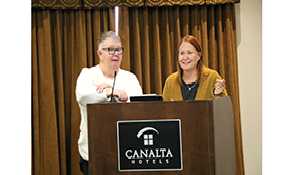


SM.jpg)
